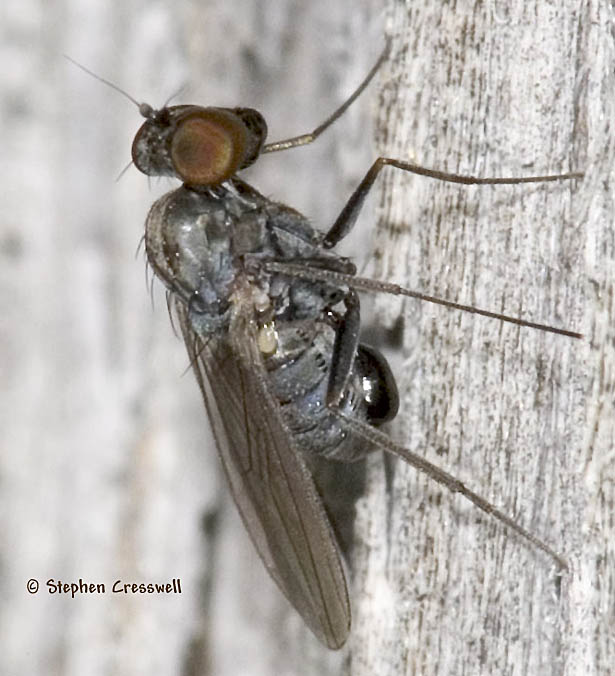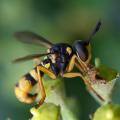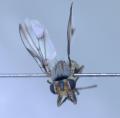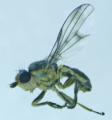Diptera.info :: Identification queries :: Diptera (adults)
Who is here? 1 guest(s)
|
Not injured after all, Medetera ?
|
|
| Stephen |
Posted on 28-10-2006 10:36
|
|
Member Location: West Virginia USA Posts: 1322 Joined: 12.04.05 |
When I first looked at this picture, I thought the fly had an injury on the ventral side of his abdomen. Then yesterday I stumbled across photos of genus Medetera on BugGuide, and those flies had this same area that looked to me like an injury. Then I came to diptera.info and saw Andre Jas had just posted an image of another Medetera. What is that black structure on the ventral surface of the abdomen? And am I right in saying Medetera sp.? And it is possible to tell if this is a male or female from this photo? Length 3.6 mm, attracted to mercury vapor light, 4 August 2006, West Virginia USA. Stephen attached the following image:  [83.46Kb] Edited by Stephen on 28-10-2006 11:23 --Stephen Stephen Cresswell www.americaninsects.net |
| Dmitry Gavryushin |
Posted on 28-10-2006 11:38
|
|
Member Location: Moscow region, Russia Posts: 3308 Joined: 17.10.05 |
A male of Medetera indeed - and I bet he's in good physical shape. |
|
|
|
| Kahis |
Posted on 28-10-2006 12:26
|
|
Member Location: Helsinki, Finland Posts: 1999 Joined: 02.09.04 |
The black thingie (to use exact morpholocial vocabulary) is the basal part of the male genitalia. Male dolichopodidae keep their genitalia folded agains the lower abdomen. In some genera this is obvious (Medetera, Dolichopus). In other cases the abdomen has a deep depression or groove for the genitalal capsule and it is not readily visible in rest position.
Kahis |
| Igor Grichanov |
Posted on 28-10-2006 12:35
|
|
Member Location: St.Petersburg, Russia Posts: 1723 Joined: 17.08.06 |
See: Bickel, D.J. 1985. A revision of the Nearctic Medetera (Diptera: Dolichopodidae). United States Department of Agriculture Technical Bulletin 1692: 1-109. Igor. |
| Stephen |
Posted on 29-10-2006 16:02
|
|
Member Location: West Virginia USA Posts: 1322 Joined: 12.04.05 |
Black, Kahis, Igor, Thanks very much for your help with this fly! I always learn so much at this site.
--Stephen Stephen Cresswell www.americaninsects.net |
| Jump to Forum: |
















